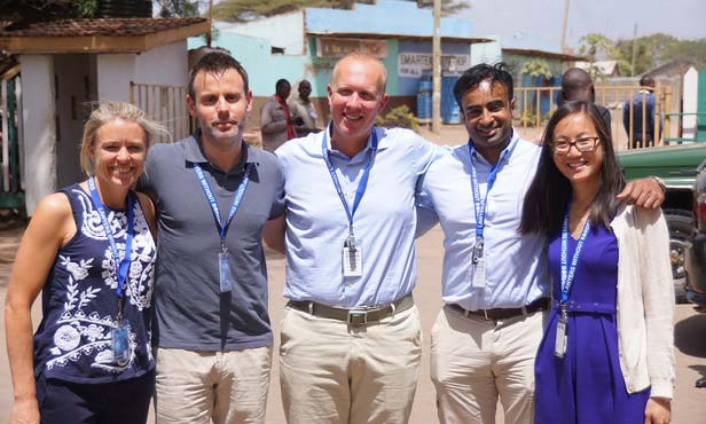
Mr. Wigdor, along with two Wigdor LLP associates, travelled to Kenya to join a Lawyers Without Borders initiative addressing wildlife poaching in Kenya. Wigdor LLP joined a team of two attorneys from Shearman & Sterling LLP who also participated in the initiative.
Poaching is a major issue in Kenya and surrounding countries. In Kenya, the majority of poaching targets elephants and rhinos, having a serious and detrimental impact on wildlife diversity in the country. Poaching also has links to global crime, with the involvement of international criminal organizations. These groups are involved with poaching as well as having links to human trafficking, money laundering and drug trafficking; this has made poaching an increasingly difficult crime to control. It is an ongoing problem which the Kenyan 2013 Wildlife Act sought to address, introducing stricter penalties aimed at encouraging conservation. However, the Wildlife Service Officers who are tasked with investigating and prosecuting poachers do not have the resources and skills necessary for successfully prosecuting poachers. Our attorneys are highly experienced in litigation; this program utilized their wealth of experience to teach best practices in the investigation and prosecution of wildlife crime in Kenya.
The group spent five days in the Kenyan regions of Isiolo and Nanyuki, training approximately forty-five Kenyan Wildlife Service officers. The training focused on evidence collection, witness interviews, examination, and investigation techniques. Importantly, the teaching also incorporated tips on presentation and public speaking. This will allow the training delivered by attorneys to be communicated to other officers, ensuring that it reaches a much wider audience.
The initial stages of planning for Lawyers Without Borders began almost twelve months prior to departure, with many hours of research going into the preparation. Before travelling, attorneys needed an in-depth knowledge of the relevant law, in particular the 2013 Wildlife Act, as well as relevant regional legislation, poaching case law and ongoing poaching cases in Kenya. Attorneys also had to have an understanding of the underlying causes of wildlife trafficking and its role within the Kenyan economy as well as the types of animal that were most frequently poached and the present security issues faced by officers.
This lengthy research allowed attorneys to highlight the issues faced by prosecutors in Kenya and allowed them to tailor the training to focus specifically on those issues which were most vital. Many hours were spent organizing information to be presented in a way that would be most effective to the Kenyan officers. These proposals focused on collecting the best evidence by preserving the crime scene, photographing the scene and analyzing the area for all evidence. The Wigdor LLP attorneys also focused on interview techniques, procedures for storing evidence, documenting all steps of the investigation and finally putting a case together.
